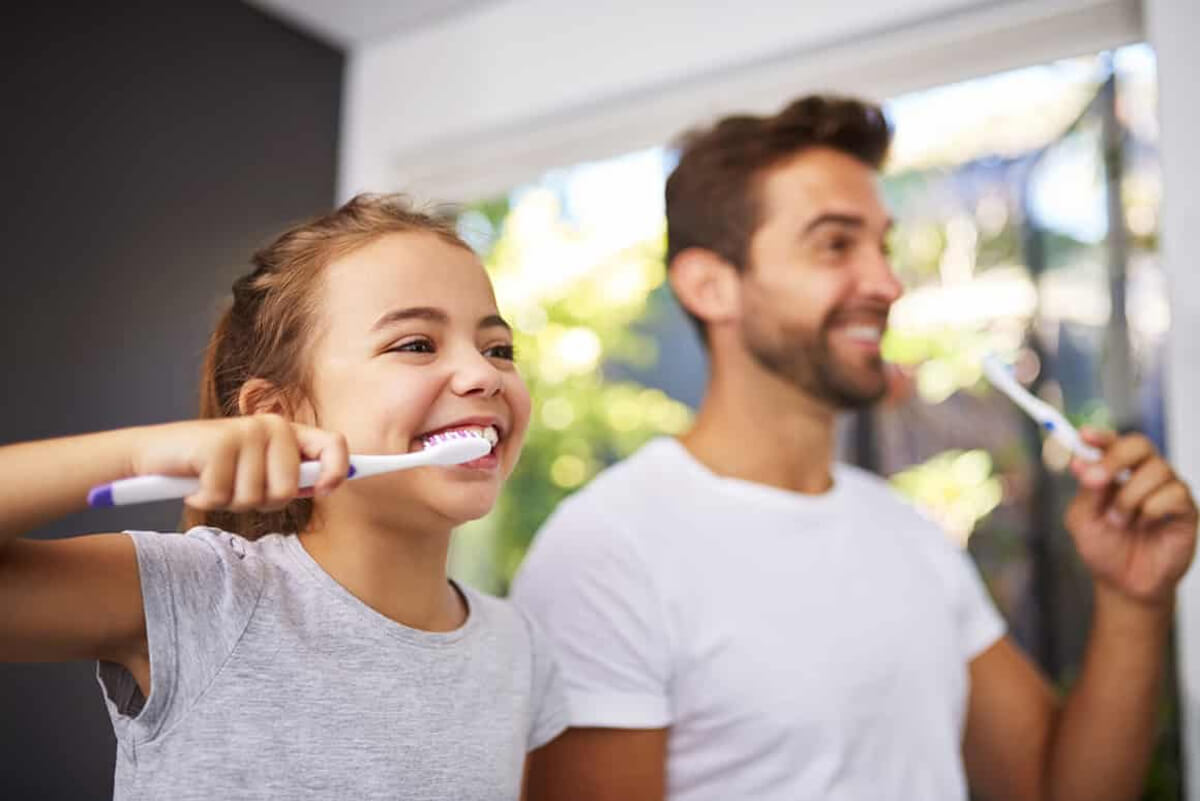Did you know, children’s oral health is just as important as adult’s oral health? Primary teeth are responsible for keeping the jaw straight and reserving space for adult teeth to grow. Additionally, the primary teeth enable children to chew, smile and speak.
Children who practice good oral habits early on are likely to continue doing so throughout adulthood. A healthier mouth will increase a child’s confidence so that they can thrive in both an academic and social environment.
When is the Right Time to Begin Practicing Oral Hygiene for Kids?
Once your child’s teeth are in contact with each other, you can begin brushing and flossing. Generally, the teeth will come into contact with each other between the ages of 2 to 3. At this time, bacteria and plaque can develop on the teeth causing decay, as food particles can become lodged between them. For more information regarding this, speak with your child’s dentist in Millwoods.
How to Brush Primary Teeth
Parents should begin practicing good oral care before their baby’s first tooth erupts. After feeding, parents should use a soft washcloth or baby toothbrush and water to wipe their baby’s gums.
Once the child’s first tooth erupts, parents should use a soft-bristled, child-sized toothbrush and non-fluoridated toothpaste to brush the teeth twice per day for two minutes.
Tooth Development Stages
Stage 1: (4-24 months)
Parents should wipe their baby’s gums using a washcloth each time after feeding, to prevent plaque buildup.
-
As soon as the first tooth erupts, parents should switch to a child-sized toothbrush and non-fluoridated toothpaste to clean their child’s teeth. Brushing should be done twice per day for a total of 4 minutes.
-
Parents should schedule an appointment with a pediatric dentist in Millwoods following their child’s first birthday. Regular appointments should be maintained every 6 months to monitor tooth development.
Stage 2: (2-4 years)
Parents should begin using a fluoridated toothbrush at this point to prevent tooth decay.
-
The teeth should be brushed for two minutes, twice per day under parent supervision. Areas to focus on when brushing include, the chewing surfaces, and the back teeth.
-
Parents should also brush their own teeth in front of their child, doing so will normalize this behaviour and encourage the child to brush and floss.
-
Nutrition contributes to a child’s oral health and overall health, parents should limit their child’s intake of sugary drinks and provide them with healthy meal and snack options instead. Also, parents should eliminate the use of a bottle and sippy cups.
Stage 3: (5-7 years)
Children don’t have the manual dexterity to properly brush and floss until they are 7 or older. This means parents should assist their child with brushing and flossing during this stage. It is best to create a brushing schedule that includes brushing in the morning and evening.
-
Children should be using fluoridated toothpaste as the permanent molars begin to develop between the ages of 5-7.
-
Making brushing a family occasion is more exciting and will encourage your child to brush and floss.
Stage 4: (8 years and older)
Once children attend school regularly, parents should provide them with a healthy and nutritious lunch. Parents should pack, fruits, vegetables and whole grains in their child’s lunch and sugary drinks should be limited.
Children should continue to brush and floss twice per day, for two minutes using an age-appropriate toothbrush and fluoridated toothpaste.
When Should I Visit a Pediatric Dental Clinic Near Me?
Parents should visit their kid’s dentist in Millwoods every 6 months to ensure proper tooth development. Your dentist in Millwoods will evaluate your child’s teeth and gums and can also suggest additional brushing and flossing techniques and tips.

